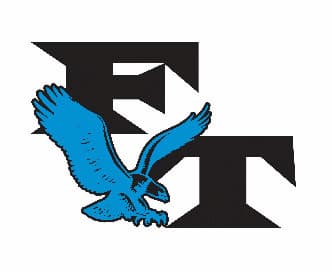As they waited in line to give the “Reality Wheel” a spin, seniors Rachel Bellows and Jayson Scribner discussed the need to set budgets to cover the expenses of living on their own after graduation.
“Budgeting is very important,” Bellows, who is in the Veterinary Science program, said. “You need to do that first and then do the other fun stuff after you pay your bills.”
Scribner, a Landscaping and Horticulture student, agreed, saying that the fair showed him that “you need to put necessities first.”
Franklin County Technical School and Franklin First Federal Credit Union recently teamed up to host the Reality Fair to give students a taste of what life could be like once they enter the workforce and start paying their own bills.
At the fair the students visited 12-14 tables with volunteers from local businesses, the community and education to talk about everything from the cost of housing, buying clothes, utilities, buying and owning a car, internet/cable, cell phone, and more, including owning a pet. The level of affordability was based on their expected entry-level salaries in their chosen trade.
For someone starting out in the field of veterinary medicine, Bellows would have a potential median salary of about $47,840 a year. As a landscaper, Scribner could earn a median salary of about $45,760.
The goal is to budget wisely and have a positive balance at the end. Once the students visited at least 12 of the 14 tables they would get a crack at spinning the Reality Wheel where they might win money or lose money.
Welding and Metal Fabrication student Hunter Lanoue said his $44,000 salary could get him a studio apartment, “because it was the cheapest.”
“Utilities are high; everything is expensive,” he said.
According to volunteer Aileen Fitzgerald of AH Rist Insurance, transitioning from school to the “real world was kind of a shock.” She said she was happy to “help young kids get a peek into what they’re coming into.”
Fitzgerald added that “lots of kids say they’ll pay whatever it takes to own a cell phone and be on social media.”
Franklin County Executive Director Jessye Deane, another volunteer, talked to students about the costs of buying and owning a car. A number of students opted for public transportation to save money, but Deane said for some jobs that might not be an option.
“People have been very thrifty when it comes to transportation,” she said. “If they’re going to stay in a rural part of the state it’s going to be a problem. The students are getting an idea of what things really cost.”
FCTS College and Career Awareness teacher Christa Snyder, who organized the Reality Fair, said she was impressed the students that students were seriously attempting to craft realistic budgets so they could live within their means.
“The feedback I’m getting is the students are glad they have options,” Snyder said. “Seeing the different options made a difference for them. They had ownership of their choices.”
Franklin First President and CEO Michelle Dwyer, who was the main driver behind organizing the fair, agreed that the students were engaged and polite.
“As far as I could tell they were all making good choices,” she said. “Things happen in life that you have to be prepared for.”
